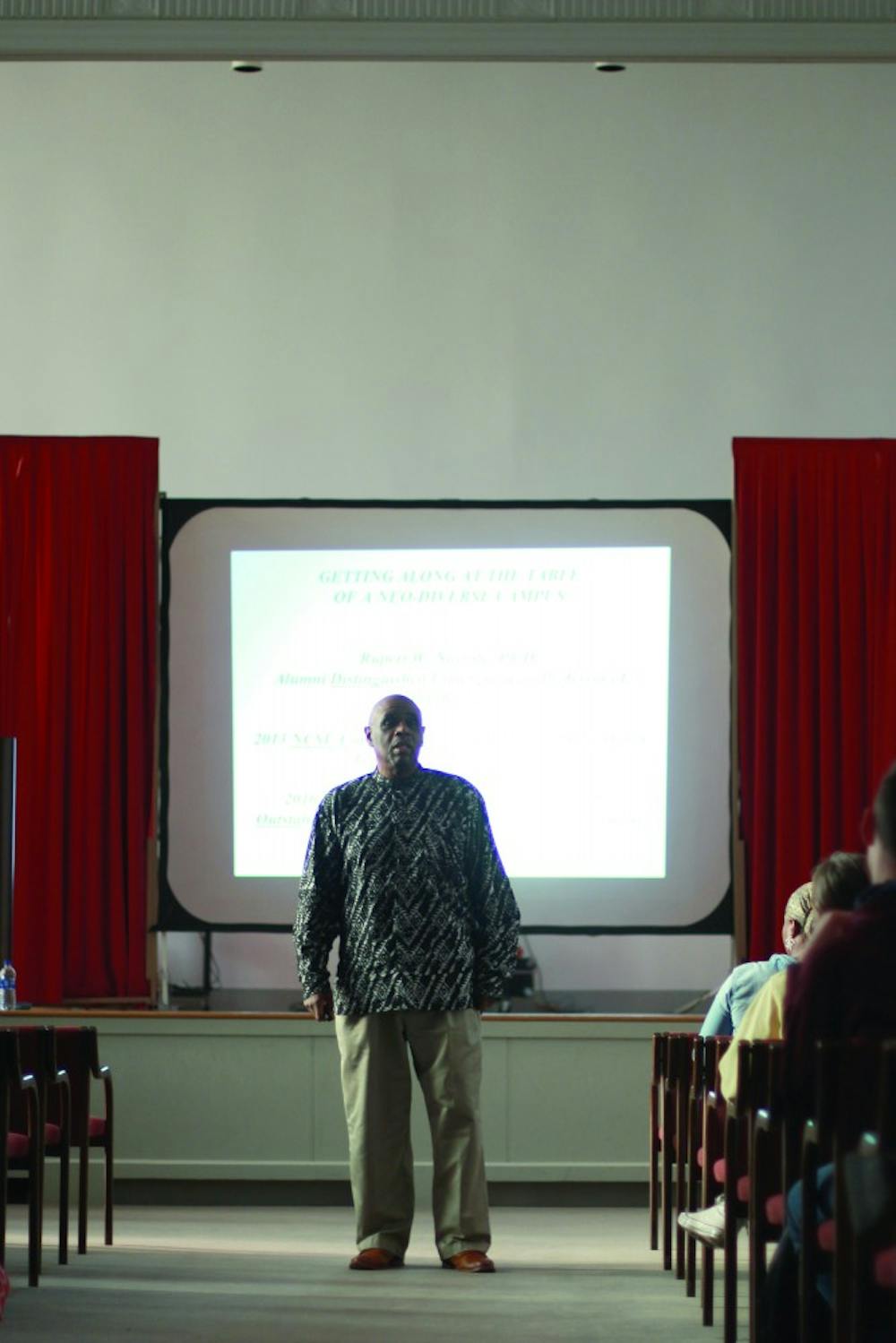Rupert Nacoste spoke about understanding society’s rapid social changes on Oct. 22 in Old Main Chapel.
Nacoste has spent the last 30 years researching and spreading his knowledge of interacting with others in a neo-diverse America.
“Everywhere in America, people are struggling to understand and manage neo-diversity. You see, nowadays and every day, each of us has some occasion to interact with a person from another racial, bodily-conditioned, religious, sexually-oriented, ethnic, mental-health conditioned or gender group,” Nacoste said.
The term neo-diversity was coined by Nacoste himself, and was further discussed in his book, “How We Can Move From Anxiety to Respect.” According to Nacoste, communicating in today’s neo-diverse society can cause individuals to become anxious when it comes to interpersonal situations with people who are unlike themselves.
“Anxiety lifts you from the reality of the situation,” he said.
This can lead people to rely on hurtful stereotypes as a way to manage the interaction.
In an effort to avoid these situations, Nacoste created a list of tips as a guide to avoiding mistakes and crashes in our complex interpersonal world.
“Never try to interact with a person as a representative of a group,” Nacoste said.
Each person is a unique individual, he said.
By relying on stereotypes, people not only hurt others, but deny themselves the chance to branch out socially and emotionally.
Nacoste also recommends that if a group stereotype comes to mind, people should “acknowledge that stereotype for what it is to yourself, then psychologically set it aside.” By pushing stereotypes to the side, the speaker is able to communicate directly to the individual in a respectful manner.
“Self-disclosures should be asked for gradually as a relationship develops,” he said.
Rather than bombarding a person with a handful of personal questions, let them be the ones to tell you whenever they are ready to do so.
This tip goes hand in hand with “going slow if the interaction is with a new acquaintance.”
Rushing an interpersonal relationship will just leave both parties feeling socially drained and frustrated.
Nacoste also discussed the importance of not becoming violent in any social interaction, even if it does become heated.
“If you find yourself in an intense social interaction, don’t attack,” Nacoste said.
He believes that even if you are being attacked, you should not stoop to the other person’s level.
Rather, an individual should stick to the behavioral standards that they have set for themselves. Remaining respectful in any and all social situations is the key to interacting well in a neo-diverse America.
The event was sponsored by the climate survey workgroup, office of accessibility resources and office of social equity.





The Slate welcomes thoughtful discussion on all of our stories, but please keep comments civil and on-topic. Read our full guidelines here.